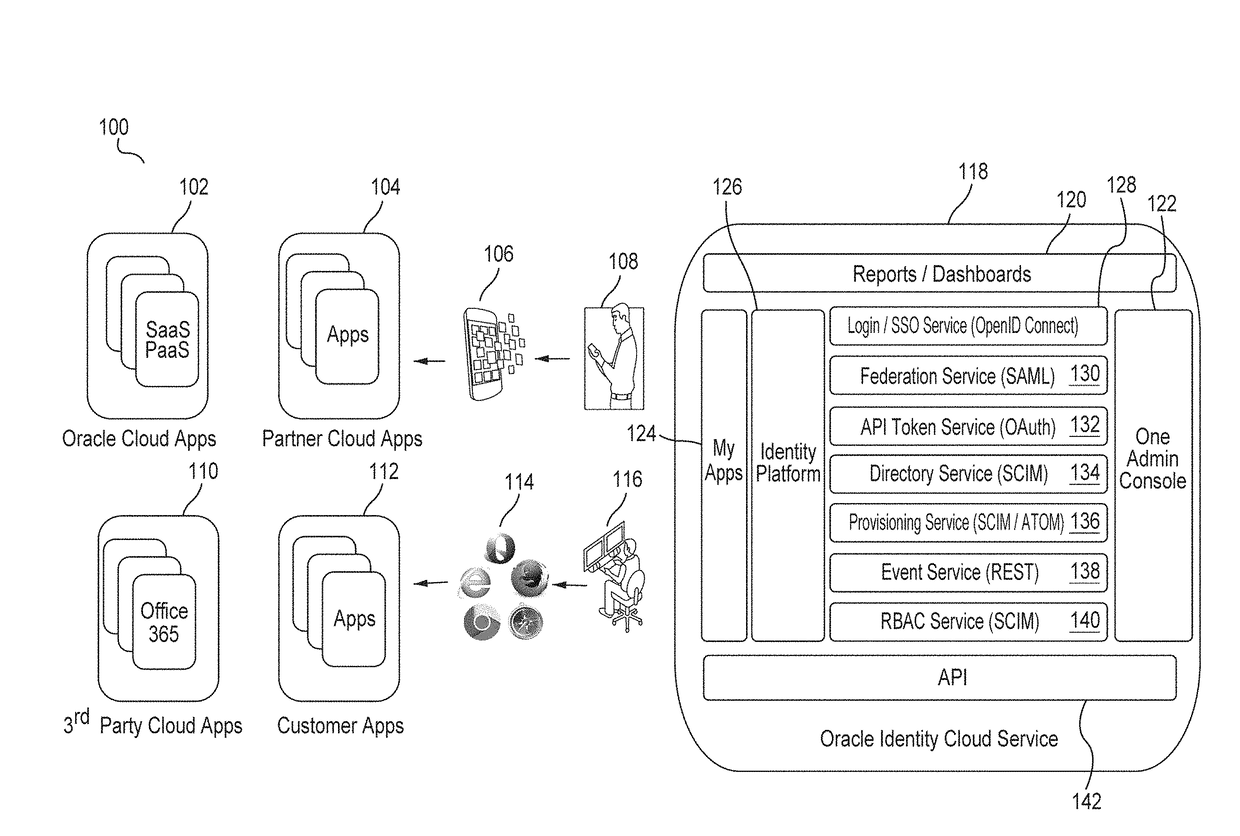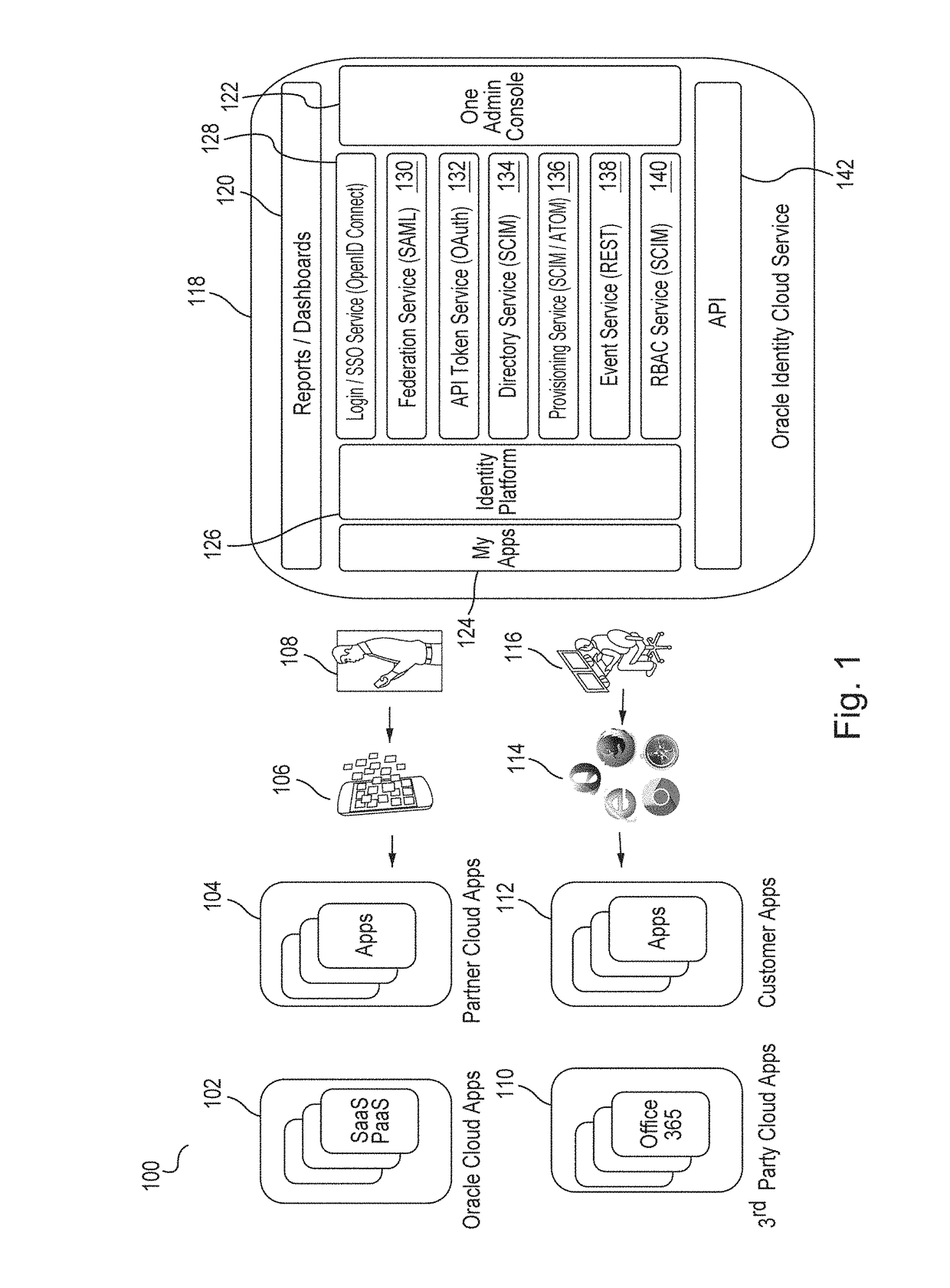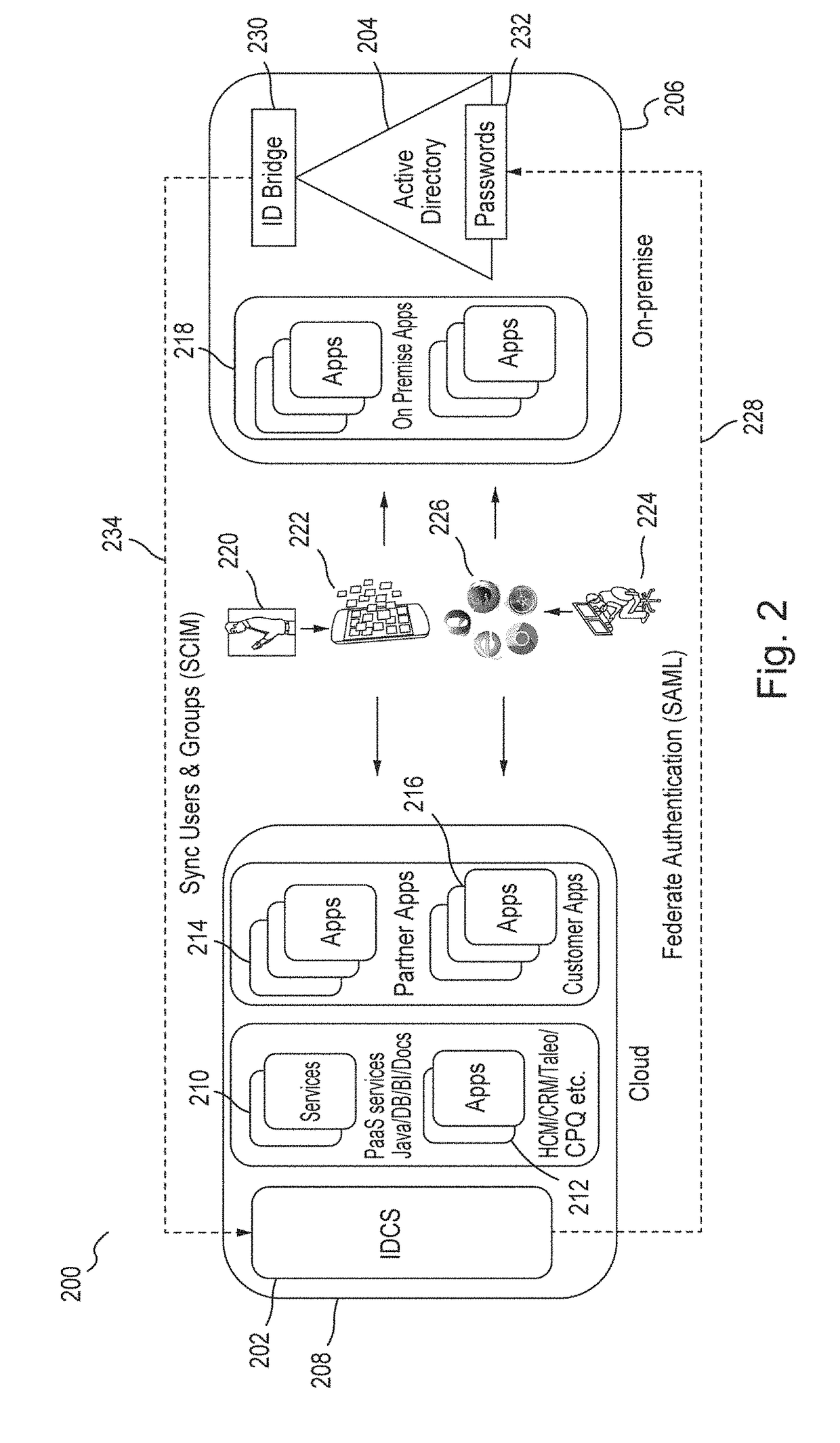Preserving LDAP Hierarchy in a SCIM Directory Using Special Marker Groups
a technology of preserving ldap hierarchy and scim directory, applied in the field of identity management, can solve problems such as hijacking, malicious insiders, and unauthorized access
- Summary
- Abstract
- Description
- Claims
- Application Information
AI Technical Summary
Benefits of technology
Problems solved by technology
Method used
Image
Examples
first embodiment
[0284]In a first embodiment, LDAP containers may be stored as attributes of an IDCS SCIM server entry. For example, if an LDAP user was present in an LDAP directory under an “ou=Sales” container, then, after migration, the “ou” attribute of the SCIM user is populated with the value “Sales” after migration. This approach relies on User and Group schema extensions and a complex DN re-construction rule that is specified in order to build back the DN from User / Group attributes at runtime.
second embodiment
[0285]In a second embodiment, LDAP containers may be mapped to new IDCS SCIM groups, and all of the SCIM users or role entries of the directory server become members of those groups. For example, if an LDAP user was present in an LDAP directory under an “ou=Sales” container, then, after migration, a new IDCS SCIM “Sales” group is created and that corresponding SCIM user is made a member of the “Sales” group. In certain embodiments, LDAP containers may be mapped to special marker IDCS SCIM groups, and all of the SCIM users or role entries of the directory server become members of those groups. These IDCS groups may be appropriately marked to distinguish them from generic IDCS groups.
[0286]In a third embodiment, the DN values of the LDAP entries may be mapped to an externallD attribute of a SCIM entry during migration. For example, if an LDAP user entry in an LDAP directory included “DN: uid=user1, ou=Sales, dc=com,” then, after migration, the SCIM user's externallD attribute will hav...
fourth embodiment
[0287]In a fourth embodiment, all entries (Users / Groups / etc.) have a footprint created in a new SCIM resource that uses relevant position markers to reconstruct their exact position (or DN) in the LDAP Hierarchy.
[0288]In certain embodiments, a Virtual Directory server may be configured for smooth processing of LDAP requests. This typically includes a List of ObjectClasses that are required to identify a user entry, such as, for example, inetorgperson, organizationperson, and person, a list of ObjectClasses required to identify a group entry, such as, for example, groupOfUniqueNames, a Realm, which is the root DN of a subtree in Client's LDAP Directory on which a client application will perform LDAP operations, such as, for example, “ou=Sales, dc=com,” and an EntryStructure that has a value of HIERARCHY or FLAT. The HIERARCHY value indicates that Cloud Cache will evaluate and rebuild the hierarchy for IDCS entries. The FLAT value indicates that Cloud Cache will not support the hierar...
PUM
 Login to View More
Login to View More Abstract
Description
Claims
Application Information
 Login to View More
Login to View More - R&D
- Intellectual Property
- Life Sciences
- Materials
- Tech Scout
- Unparalleled Data Quality
- Higher Quality Content
- 60% Fewer Hallucinations
Browse by: Latest US Patents, China's latest patents, Technical Efficacy Thesaurus, Application Domain, Technology Topic, Popular Technical Reports.
© 2025 PatSnap. All rights reserved.Legal|Privacy policy|Modern Slavery Act Transparency Statement|Sitemap|About US| Contact US: help@patsnap.com



